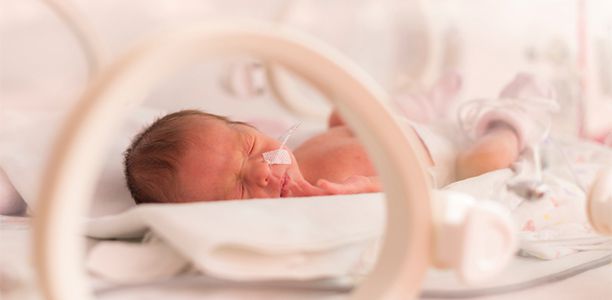A Telethon Kids Institute study published in The Lancet Child & Adolescent Health has found that survivors of very preterm birth face declining lung function as they get older, rather than growing out of any lung problems as previously believed.
In the biggest study of its kind since significant improvements in neonatal critical care during the 1990s drastically improved the chances of survival for preterm babies, a team of researchers led by Dr Shannon Simpson spent eight years following the progress of 200 babies born at less than 32 weeks’ gestation, along with 67 controls born at full term.
The preterm babies, who had a median gestation of 28 weeks and an average birth weight of 975g, were given a comprehensive set of lung function tests at various points between the ages of four and 12 years, with 133 also receiving a CT scan of the chest at the age of 10 years.
“We also found that children who were exposed to cigarette smoke during their childhood had more declines in their lung function throughout that time.”
In addition, children who showed certain changes on their chest scans – suggestive of ongoing active lung disease – had more decline in lung function than those without such changes.
“This is a really important finding because it might open up an avenue for us to be able to treat these children and stop the lung disease where it is,” Dr Simpson said.
She said the findings contradicted the long-held belief that any lung issues experienced by preterm babies would resolve over time.
“Previously, it was thought that when you are born preterm you experience something called ‘catch-up growth’ – which means that by the time you start school your lungs are the same as a child who was born at term – and that any lung damage that you did have was the consequence of life-saving treatments administered in the neonatal intensive care unit (NICU),” Dr Simpson said.
“However our data suggests that there may be some sort of active process going on in some children that would lead them to having these declines through life.”
Dr Simpson said it was important to note that not all of the preterm children studied showed declining lung function.
“Some of these kids have no respiratory symptoms and have gone on to become athletes or play rugby, but others are really sick,” she said. “We just don’t know yet how to tell which babies are going to have problems and which ones aren’t.
“It might just be useful for kids to have their lung function tested when they are six years old to try and get some kind of baseline, or have some regular follow-up so we can further understand why these kids are declining and at what point we need to do something about it.
“It’s also really important that we let families of preterm babies know that smoking around their children may have long-term lung health outcomes. That’s true for all kids, but especially for this vulnerable group.”
Dr Simpson said the research added to what is currently a very modest body of evidence around the ongoing lung health of babies who survived very early birth.
“The kids we are looking at now are in some ways history-makers,” she said. “It’s really only been the last 25 years that babies born so early have been able to survive, and that’s thanks to modern treatments that started to become available in the 1990s.
“But that also means we don’t know an awful lot about their long-term trajectories, especially in relation to lung health. There hasn’t really been a lot of long-term follow-up of survivors of very preterm birth.
“Although some studies have looked at lung function in preterm children, few have looked at preterm babies born since those breakthroughs of the 1990s, and those that did so have looked at only small groups or have not included more than two time points.
“This is also the first study to include such comprehensive testing.”
Dr Simpson and her team have since received National Health and Medical Research Council (NHMRC) funding to carry out further follow-up on the study subjects, now aged in their mid-late teens, to see whether their lung function is continuing to decline.
They also have NHMRC funding for a simultaneous intervention trial of a drug commonly used to treat asthma; and have commenced an additional NHMRC-backed study which will seek to identify markers that can be used to predict which babies are likely to go on to have further lung problems.
“At the moment we just can’t predict in the ICU which of these kids are going to go on to live absolutely normal, happy, productive lives and which ones are going to go on to have health issues – be that neurodevelopmental, lung or other issues,” Dr Simpson said.
(Source: Telethon Kids Institute, The Lancet Child & Adolescent Health)










